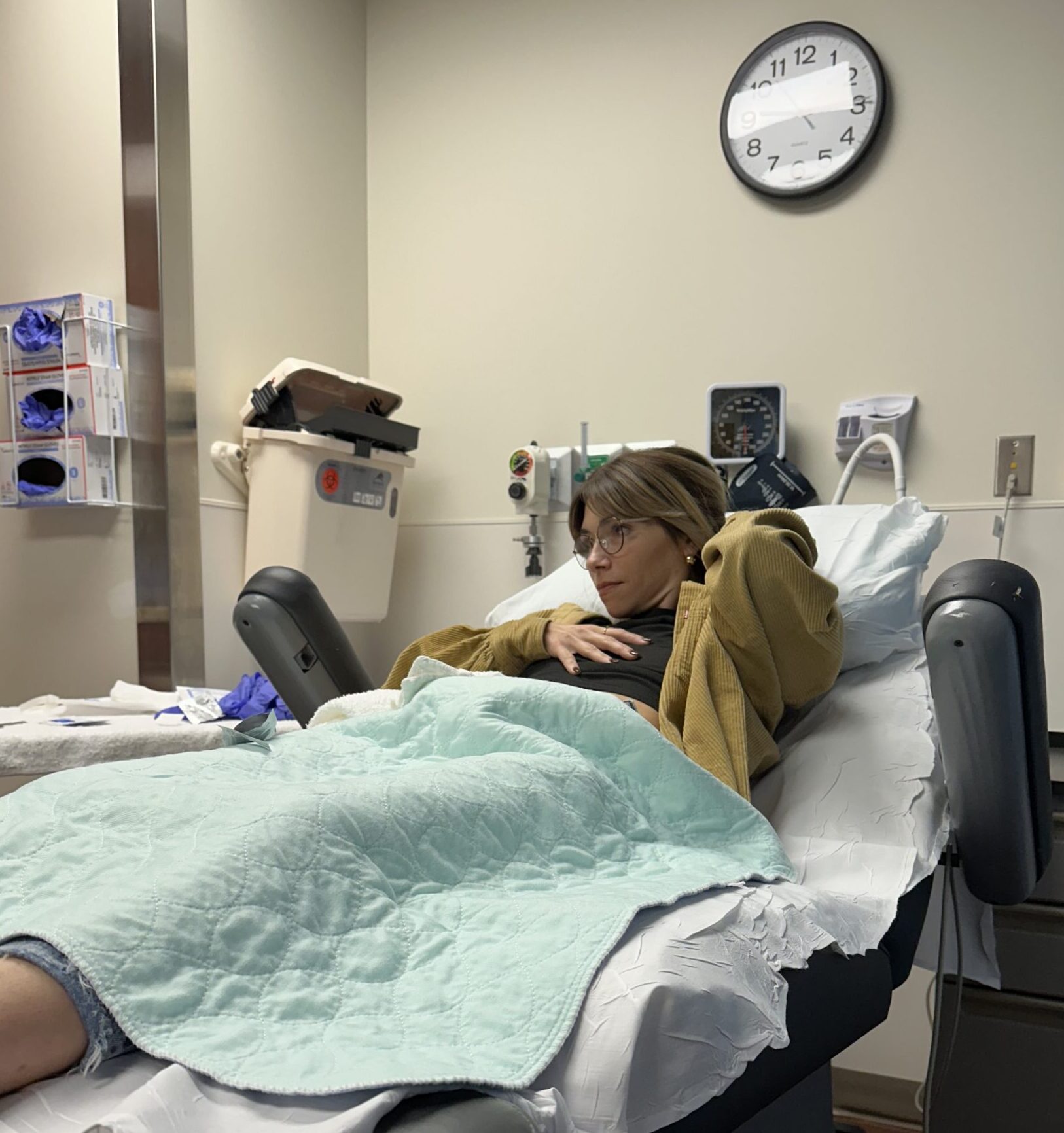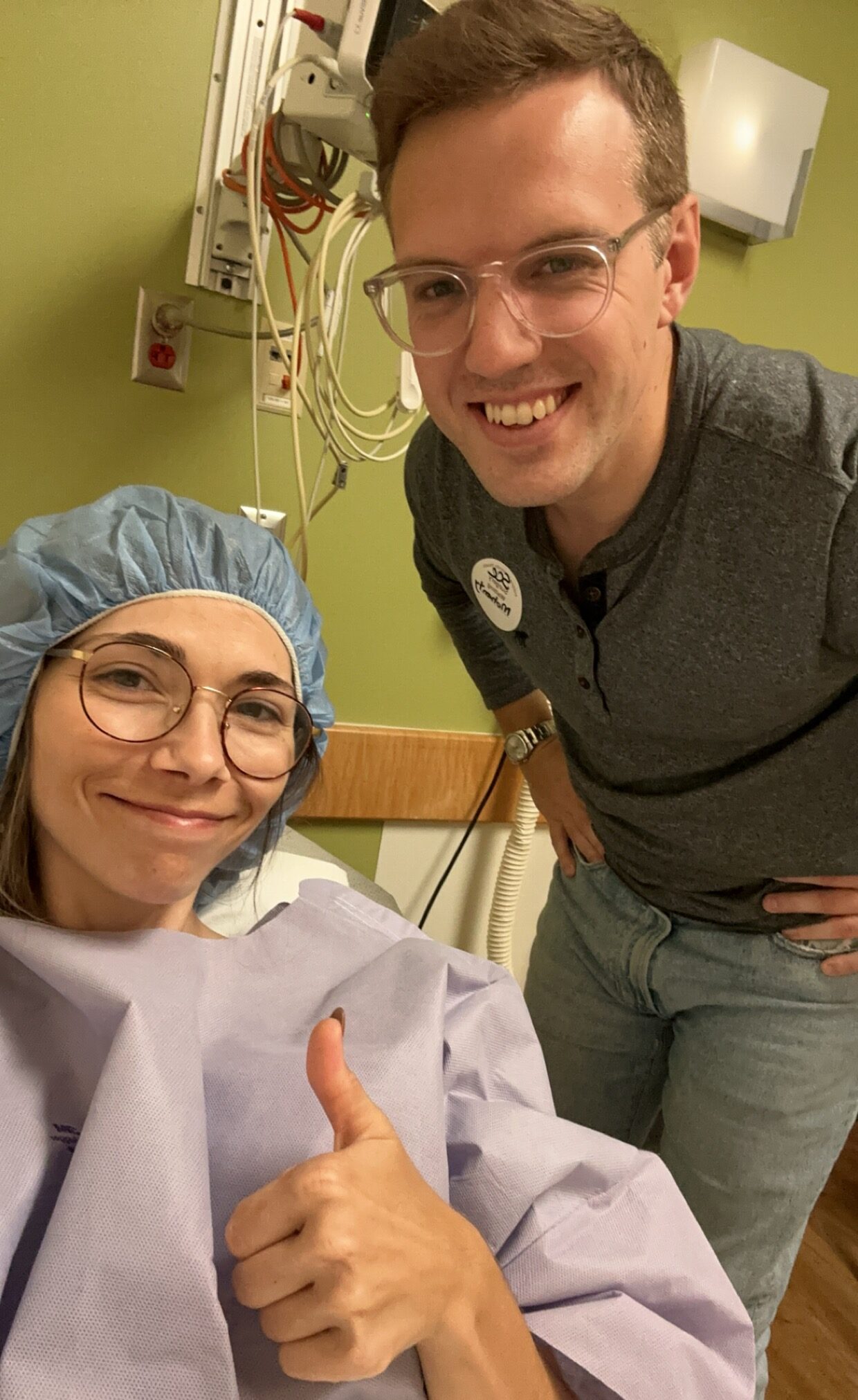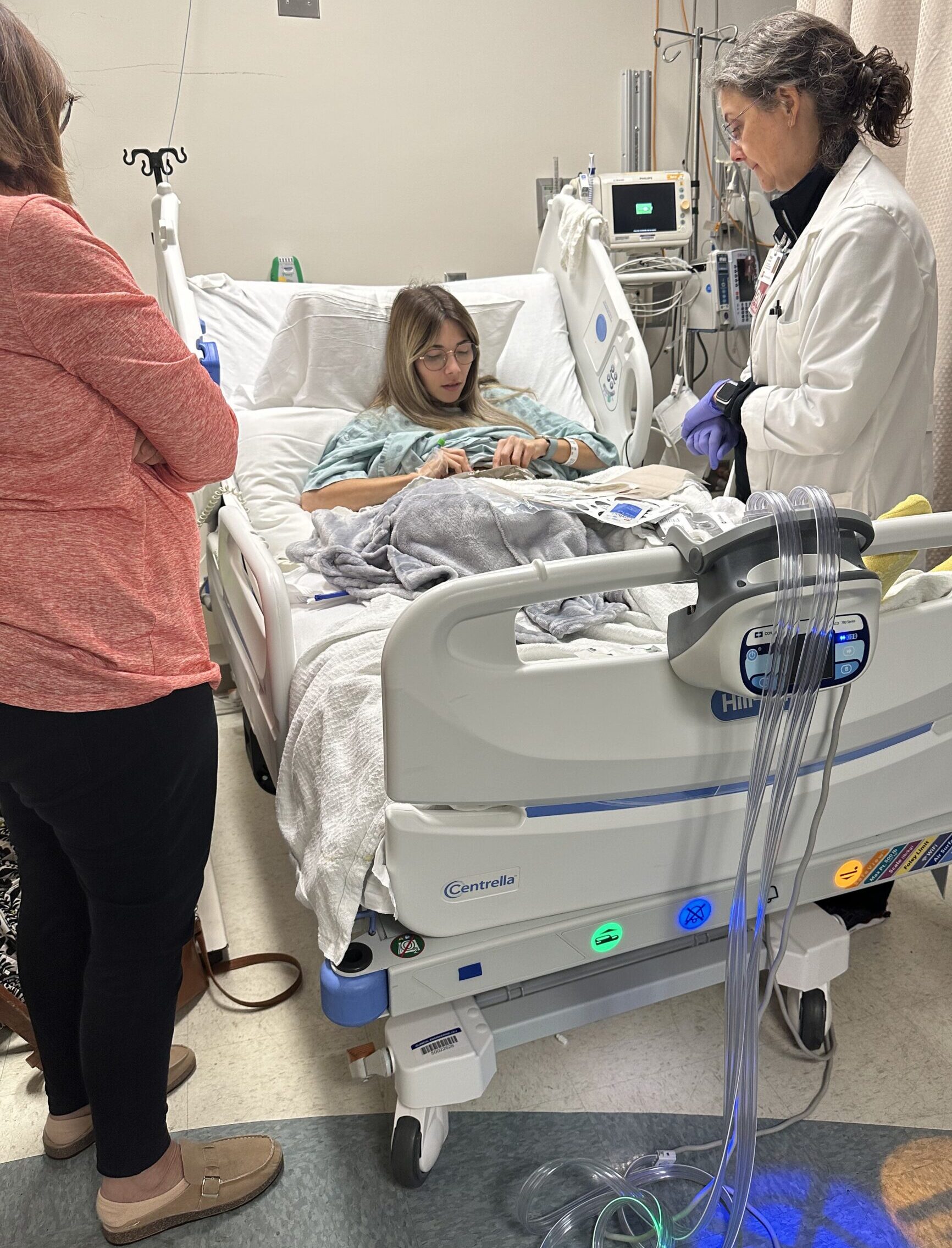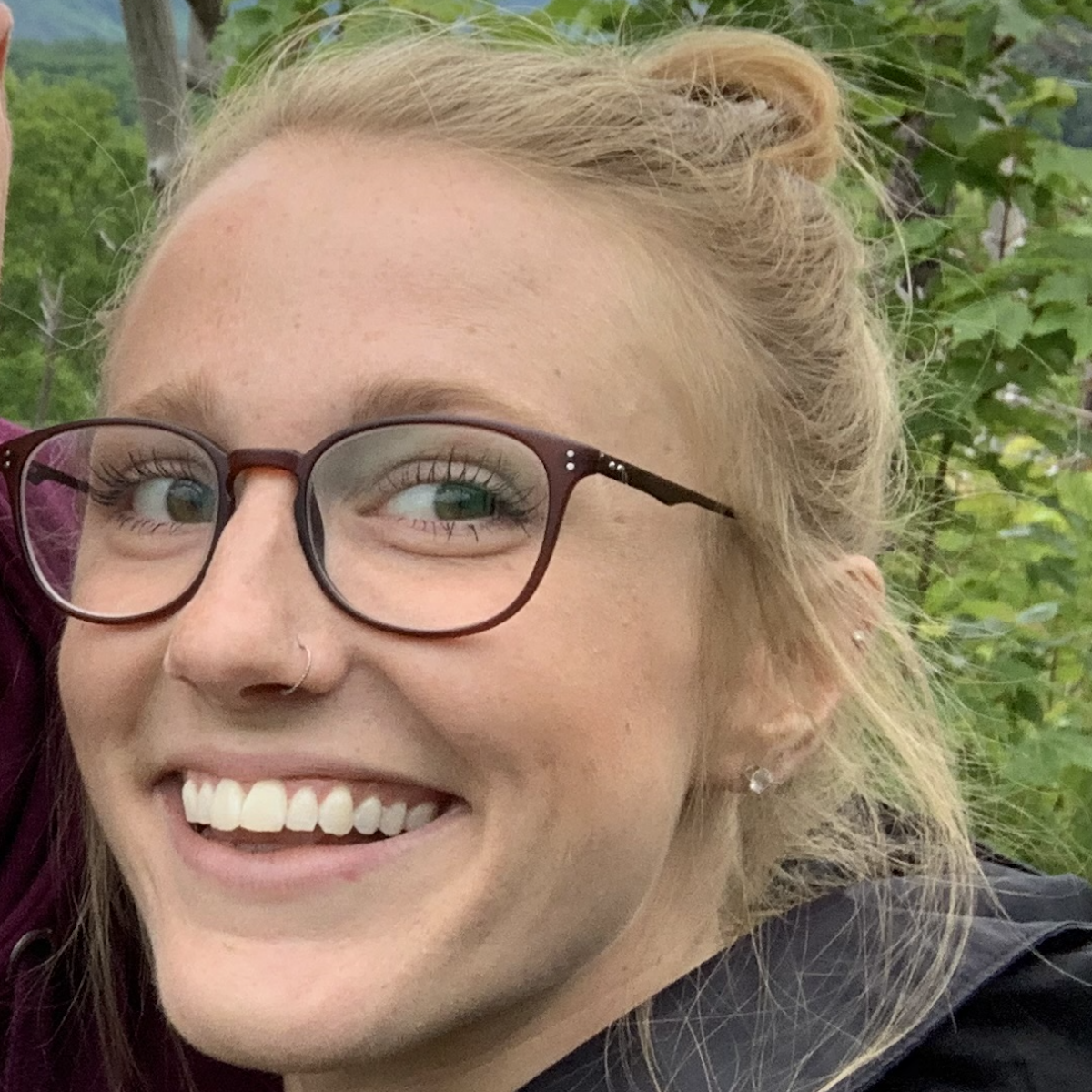Embracing Life and Breaking Stigma: Sarah’s Experience with Ulcerative Colitis (IBD)
Sarah was diagnosed with ulcerative colitis, a form of inflammatory bowel disease (IBD), in 2018. She started experiencing persistent stomach aches, bloating, and severe constipation in her youth, which escalated to blood in her stool during her college years, indicating that there was something seriously wrong. She saw a gastroenterologist who diagnosed her with ulcerative proctitis, which later progressed to ulcerative colitis.
Learn more about IBD symptoms versus colorectal cancer.
Sarah experienced profound pain associated with pelvic floor dysfunction, which significantly impacted her daily life, affecting everything from exercise to intimate relationships.
Interviewed by: Taylor Scheib
Edited by: Chris Sanchez
Despite trying numerous treatments, including medications and working with a functional medicine doctor, Sarah just got sicker. She started experiencing chronic pain, fatigue, joint pain, and skin rashes. Her pelvic floor issues worsened her constipation, creating a cycle of discomfort and frustration. Doctors recommended surgery, but she initially resisted. The turning point came in 2022 when a colonoscopy revealed a non-functioning colon. Realizing there was no alternative, Sarah agreed to ostomy surgery, spurred by her husband’s assurance that things couldn’t get worse.
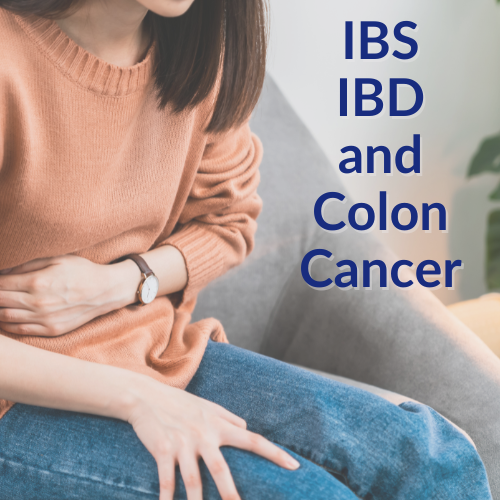
Understanding IBS, IBD, and Colorectal Cancer Symptoms
Many symptoms of IBD—such as abdominal pain, cramping, and changes in bowel habits—can overlap with those of colorectal cancer, which can make it difficult to tell the conditions apart. While IBD is a chronic condition, it’s important to pay attention to any new, worsening, or unusual symptoms.

The surgery was daunting, but it brought hope and a new perspective. Afterward, Sarah quickly noticed improvements in her quality of life. She could enjoy simple pleasures, like drinking coffee in the morning without discomfort, and was moved to tears by moments like watching a sunrise, which she thought she’d never enjoy again.
Sarah learned to navigate her new normal, seeking advice from an ostomy nurse and connecting with others in similar situations. Her ostomy, which she affectionately refers to as her “badge of courage,” has given her back her life, enabling her to travel, work out, and live without the constant shadow of pain.
Sarah has embraced her ostomy not as a limitation but as a source of strength. She now advocates for others facing similar challenges, promoting a message that life with an ostomy can be fulfilling and normal. Sarah’s journey is a testament to the capacity for adaptation and triumph.
Watch Sarah’s story and learn more about:
- Embracing a positive outlook in the face of an overwhelming situation.
- The power of support and her husband’s crucial role.
- Finding new strength and vitality post-surgery.
- Overcoming the stigma associated with an ostomy and how to live fully with one.
- Name:
- Sarah A.
- Age at Diagnosis:
- 26
- Diagnosis:
- Ulcerative Colitis (a type of Inflammatory Bowel Disease or IBD)
- Symptoms:
- Bowel irregularity
- Severe stomach aches
- Blood in stool
- Treatments:
- Surgery: ostomy surgery
- Steroids
- Anti-inflammatory medication: mesalamine
- Biologic therapy
This interview has been edited for clarity and length. This is not medical advice. Please consult with your healthcare provider for treatment decisions.

Inspired by Sarah's story?
Share your story, too!
More Crohn’s and Colitis Stories
Kristen F., Crohn’s Disease (IBD)
Symptoms: Fatigue, abdominal cramps, blood in stool, loss of appetite, frequent and painful bathroom visits, perianal disease (open wound), mouth sores, joint pain
Treatments: Multiple medications, surgeries (temporary ostomy, total colectomy and permanent ostomy, Barbie butt surgery or proctectomy)
Jess G., Crohn’s Disease (IBD)
Symptoms: No appetite even when offered a favorite dessert, weight loss
Treatments: Steroids, blood transfusions, biologics, surgeries (colectomy, small bowel resection, colostomy)
Ariel D., Ulcerative Colitis (IBD)
Symptoms: Overactive bowel, heavy cramps in stomach area, abdominal pain
Treatment: Surgery (ileostomy)
Alli R., Ulcerative Colitis
Symptoms: Blood in stool, unexplained weight loss, stomach pain, constant defecation
Treatment: Surgery (ileostomy)
Sarah A., Ulcerative Colitis
Symptoms: Bowel irregularity, severe stomachaches, blood in stool
Treatments: Surgery (ostomy surgery), steroids, anti-inflammatory medication (mesalamine), biologic therapy
Dana D., Crohn’s Disease (IBD)
Symptoms: Abdominal pain, diarrhea, blood in stool
Treatments: Surgeries (colon resection, total proctocolectomy with end ileostomy,
abdominal perineal resection, myocutaneous flap), steroids, biologic therapy




